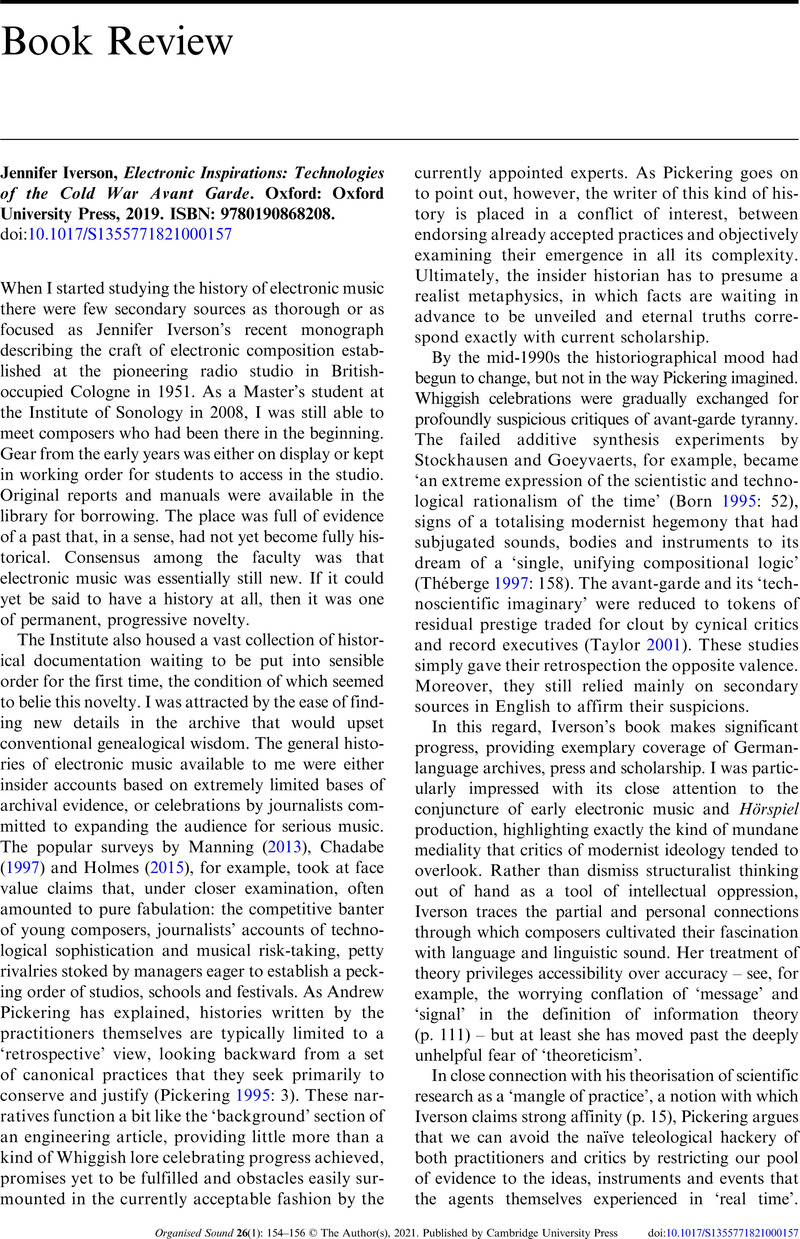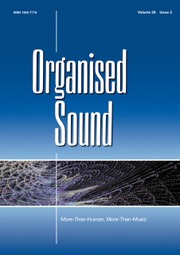No CrossRef data available.
Article contents
Jennifer Iverson , Electronic Inspirations: Technologies of the Cold War Avant Garde. Oxford: Oxford University Press, 2019. ISBN: 9780190868208.
Published online by Cambridge University Press: 20 August 2021
Abstract
An abstract is not available for this content so a preview has been provided. Please use the Get access link above for information on how to access this content.

- Type
- Book Review
- Information
- Organised Sound , Volume 26 , Issue 1: The Sonic and the Electronic in Improvisation , April 2021 , pp. 154 - 156
- Copyright
- © The Author(s), 2021. Published by Cambridge University Press
References
REFERENCES
Barnes, B., Bloor, D. and Henry, J. 1996. Scientific Knowledge: A Sociological Analysis. London: Athlone.Google Scholar
Bauchspies, W. and Puig de la Bellacasa, M. 2009. Re-tooling Subjectivities: Exploring the Possible with Feminist Science and Technology Studies. Subjectivity 28(1): 227–8.CrossRefGoogle Scholar
Born, G. 1995. Rationalizing Culture. Berkeley: University of California Press.CrossRefGoogle Scholar
Collin, F. 2011. Science Studies as Naturalized Philosophy. Cham, Switzerland: Springer.CrossRefGoogle Scholar
Haraway, D. 1988. Situated Knowledges: The Science Question in Feminism and the Privilege of Partial Perspective. Feminist Studies 14(3): 575–99.CrossRefGoogle Scholar
Holmes, T. [1985] 2015. Electronic and Experimental Music, 5th edn. London: Routledge.CrossRefGoogle Scholar
Manning, P. [1985] 2013. Electronic and Computer Music, 4th edn. Oxford: Oxford University Press.CrossRefGoogle Scholar
Pickering, A. 1995. The Mangle of Practice. Chicago: University of Chicago Press.CrossRefGoogle Scholar



